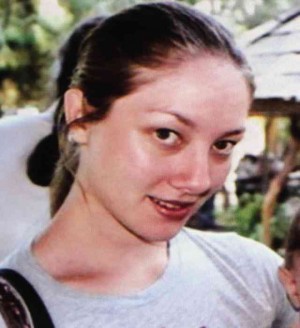Enzo Pastor slay: Dalia loses bid to void arrest warrant
Dalia Guerrero-Pastor has failed in her bid to stay the enforcement of the warrant for her arrest in connection with the June 2014 murder of her husband, car racing champion Ferdinand “Enzo” Pastor.
The Court of Appeals threw out for lack of merit Dalia’s petition for a writ of preliminary injunction and temporary restraining order, which questioned the propriety of the arrest order issued by Judge Luisito Cortez of Quezon City Regional Trial Court Branch 91.
The appellate court’s Seventh Division said Dalia failed to convince the court that “there is extreme urgency for the relief.”
“In the case before us, Dalia failed to satisfy all the requisites necessary for the issuance of injunctive relief. Dalia failed to establish that she has a clear and unmistakable legal right which ought to be protected,” read a portion of the 10-page ruling.
Associate Justice Maria Elisa Sempio-Diy wrote the Sept. 14 resolution which was concurred in by Associate Justices Celia Librea-Leagogo and Florito Macalino.
Article continues after this advertisementDalia has been indicted for parricide as one of the primary suspects in the killing of her husband, who was shot dead by a lone gunman on the night of June 12, 2014, at the corner of Congressional and Visayas Avenues in Quezon City.
Article continues after this advertisementShe has since gone into hiding reportedly outside the country. Her coaccused and alleged lover, Domingo “Sandy” de Guzman, was arrested but managed to post bail in September 2014 in connection with a separate charge of illegal possession of firearms.
The police have also arrested the suspected hitman, Edgar Angel, then a Pasay policeman.
In challenging her arrest, Dalia accused Cortez of committing grave abuse of discretion for issuing the warrant in March 2015, even after Angel retracted his two statements naming her and De Guzman as the brains of the crime.
She argued that Angel’s admission that he was only forced to implicate her and De Guzman in Pastor’s murder only proved that there was no evidence linking her to the killing.
She also claimed that her constitutional rights to liberty and due process would be violated if the trial proper would not be stopped by the appeals court.
The court, however, ruled that it “cannot make any pronouncement that would preempt the merits of the main case.”
“The prevailing rule is that courts should avoid issuing a writ of preliminary injunction that would in effect dispose of the main case without trial,” it said.

